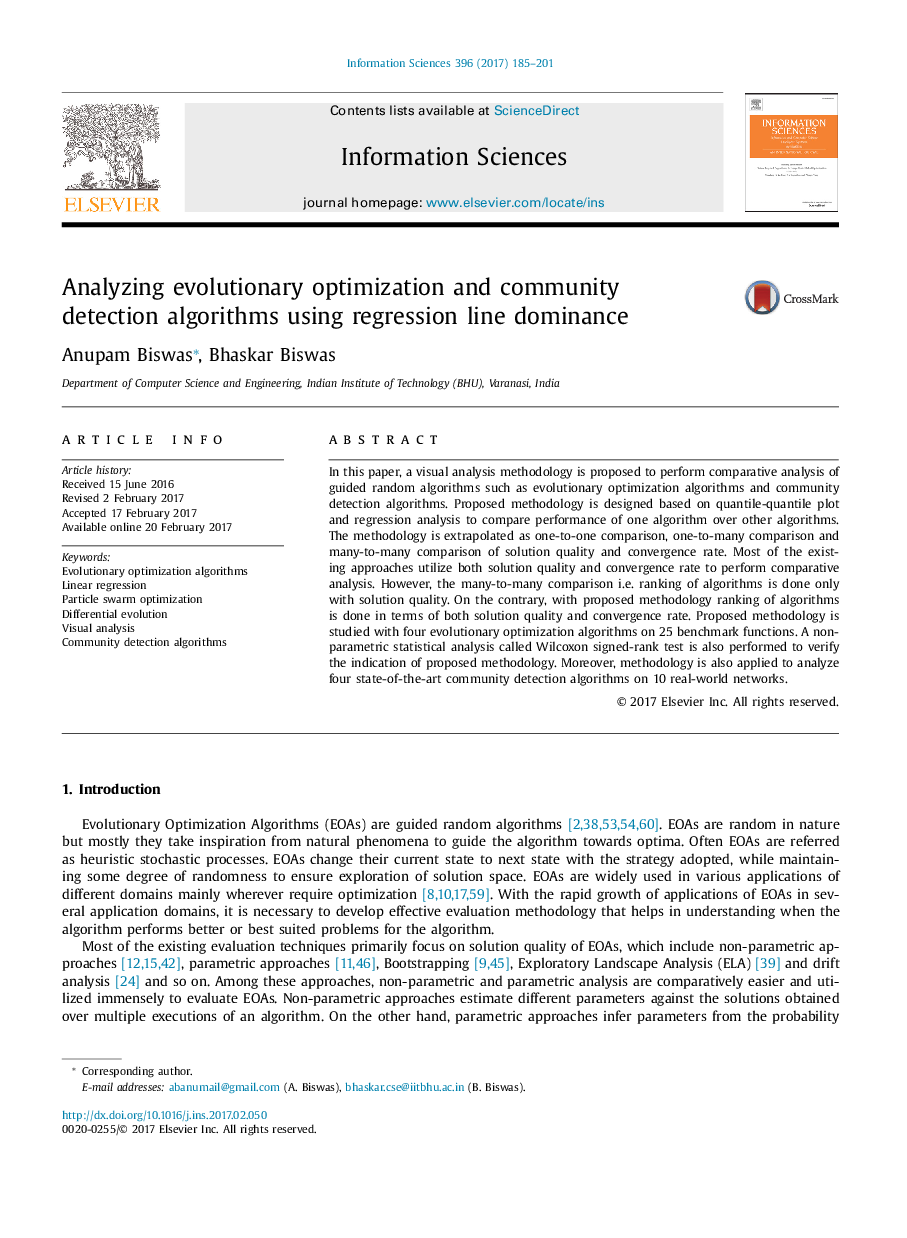ترجمه فارسی عنوان مقاله
تجزیه و تحلیل بهینه سازی تکاملی و الگوریتم های تشخیص جامعه با استفاده از سلطه رگرسیون
عنوان انگلیسی
Analyzing evolutionary optimization and community detection algorithms using regression line dominance
| کد مقاله | سال انتشار | تعداد صفحات مقاله انگلیسی |
|---|---|---|
| 150135 | 2017 | 17 صفحه PDF |
منبع

Publisher : Elsevier - Science Direct (الزویر - ساینس دایرکت)
Journal : Information Sciences, Volume 396, August 2017, Pages 185-201
ترجمه کلمات کلیدی
الگوریتم های بهینه سازی تکاملی، رگرسیون خطی، بهینه سازی ذرات ذرات، تکامل دیفرانسیل، تجزیه و تحلیل ویژوال، الگوریتم تشخیص جامعه،
کلمات کلیدی انگلیسی
Evolutionary optimization algorithms; Linear regression; Particle swarm optimization; Differential evolution; Visual analysis; Community detection algorithms;

